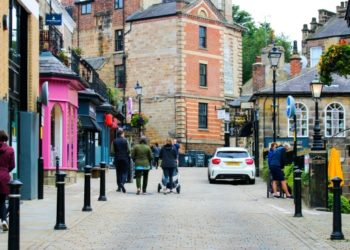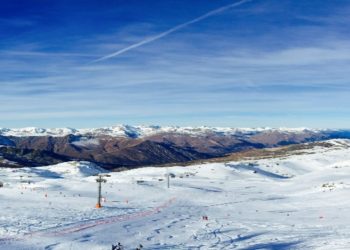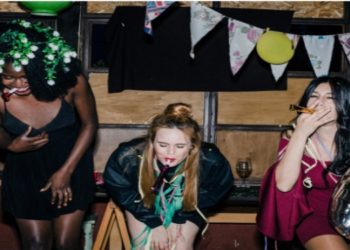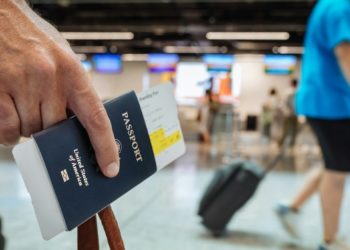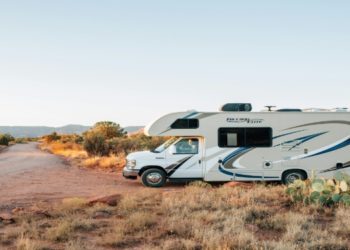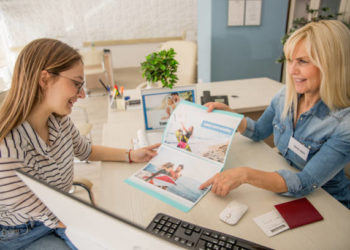Iceland seems like a place from another world. Hot springs steam amidst icy landscapes, volcanoes are just a few hours’ drive from glaciers, and the Northern Lights dance in the sky as darkness falls over the land.
Despite this spectacular natural backdrop, Iceland is not an inaccessible land of adventure, but rather a modern country with a well-connected population, stable infrastructure, and a high standard of living. Around 400,000 people live on the remote island in the North Atlantic – spread across a few cities, vast plains, and small, weather-resistant villages.
But what does everyday life really look like? What is life like beyond the postcard images, when wind, cold, and isolation are the norm – and yet a high quality of life is possible?
This article takes a look behind the scenes of everyday Icelandic life – where technology meets nature, community meets personal responsibility, and tradition meets digital modernity.
A Society in Balance – Between Tradition and Modernity
Iceland is known for its cosmopolitan yet deeply rooted society. Despite its geographical isolation, a modern way of life has been established, based on education, equality, and digital connectivity.
Many government processes have long been conducted online: doctor’s appointments, administrative procedures, even elections can be organized digitally. This efficiency is in keeping with a population that accepts progress as part of their reality without losing sight of traditional values.
Leisure and social participation play a major role in everyday Icelandic life – not only in cultural centers like Reykjavík, but also in small communities. Social cohesion, often supported by clubs, music groups, or volunteer work, is particularly striking.
Casinos for Iceland’s residents also play a special role in this – they are subject to strict legal regulations and are not designed to maximize profits. Instead, they usually serve charitable purposes and finance non-profit projects. Gambling is not seen as escapism, but as a regulated form of entertainment within the framework of social responsibility.
Iceland thus achieves a balance that could serve as a model for many countries: modern and responsible, without losing its sense of community.
Leisure, Culture, and Escapes
Anyone living in Iceland knows that everyday life needs balance. The harsh climate, the long winters, and the often isolated location of many places require a conscious use of leisure time. Therefore, culture and leisure are particularly important in Iceland – not as a luxury, but as a necessary part of life.
Music and literature are firmly anchored in everyday life. Many Icelanders write poems, play an instrument, or regularly attend concerts. Festivals, art exhibitions, and readings are also part of the year – even in remote places. Books play a central role: Iceland has the highest number of published books per capita in the world.
Sports and exercise are equally important. Swimming pools with warm thermal water serve not only as a place to relax but also as a meeting place. In winter, ski resorts beckon, while in summer, hiking trails through lava fields and across fjords invite you to unwind.
Last but not least, digital offerings – from streaming services to online gaming – also offer a form of retreat from everyday life. This creates a mix of leisure activities that combine personal interests with communal experiences.
Whether alone or together – Icelanders have learned to create small escapes from everyday life without losing their connection to the community.
Working, Living, Surviving – Between Opportunities and Challenges
Working life in Iceland is characterized by flexibility, flat hierarchies, and high labor force participation. Many people work in multiple jobs simultaneously – for example, in the tourism industry, public institutions, or the creative sector. The working week is comparatively short, and trust between employers and employees is high.
Nevertheless, everyday life is not always easy. The cost of living is among the highest in Europe. Food, clothing, and gasoline often have to be imported, which directly affects the price. Housing is also scarce – especially in Reykjavík. Demand exceeds supply, and rents are continuously rising.
At the same time, the state provides well-developed social security systems: childcare, healthcare, and education are easily accessible to the population. In many communities, support functions at the local level – whether through neighborhood assistance or community initiatives.
Despite adverse conditions, most people manage to build a stable life. The willingness to take on responsibility, adapt, and find pragmatic solutions is deeply rooted in everyday culture.
Living with Nature – Between Dependence and Respect
Iceland is a country that reminds us daily how small humanity is compared to the forces of nature. Volcanic eruptions, earthquakes, snowstorms, and sudden changes in the weather are part of everyday life – and shape the behavior of the population more than is visible from the outside.
Dealing with these natural forces is pragmatic. Early warning systems, emergency plans, and technical precautions are part of public life. Schools and workplaces are prepared, and people learn early on how to behave in critical situations.
The energy supply is also directly linked to nature: geothermal and hydropower cover almost all electricity needs. Heating, hot water, and electricity come from sources that literally bubble up from the ground – sustainable, reliable, and independent of global markets.
But nature means not only risk, but also tranquility. Many Icelanders consciously seek seclusion, for example, in summer houses far from cities. Where cell phone reception is sparse, there is space for slowing down and self-reflection. Isolation in Iceland doesn’t automatically mean loneliness, but is often a conscious choice.
Living with nature is both a challenge and a gift – and shapes the self-image of a society that has learned to live with, not against, the elements.
Looking to the Future – Where Iceland Leads Today
Iceland is not only close to nature, but also forward-looking. The country serves as a pioneer in many areas – especially when it comes to sustainability, education, and technology.
Its energy policy is internationally considered exemplary. Through the consistent expansion of renewable energies, Iceland has become almost completely independent of fossil fuels. CO₂ storage projects, geothermal innovation centers, and energy-efficient construction methods demonstrate how climate protection can work in practice.
Iceland is also forging its own path in education. Schools focus on individualized support, creative subjects, and digital literacy. From an early age, children learn not only content, but also how to think critically, collaborate, and take responsibility.
Technologically, Iceland is better connected than its location suggests. Startups in the fields of software, gaming, and biotechnology are emerging primarily in Reykjavík – supported by government innovation funding and an international network.
But progress does not mean changing everything. Despite all its openness, Iceland remains firmly anchored in its identity. The view into the future is therefore not only shaped by technology, but also by the question of how people and the environment can remain in lasting harmony.
David Prior
David Prior is the editor of Today News, responsible for the overall editorial strategy. He is an NCTJ-qualified journalist with over 20 years’ experience, and is also editor of the award-winning hyperlocal news title Altrincham Today. His LinkedIn profile is here.


![7 Best POS Software in the UK [2026 Edition]](https://todaynews.co.uk/wp-content/uploads/2026/02/7-Best-POS-Software-in-the-UK-2026-Edition-360x180.png)






















































